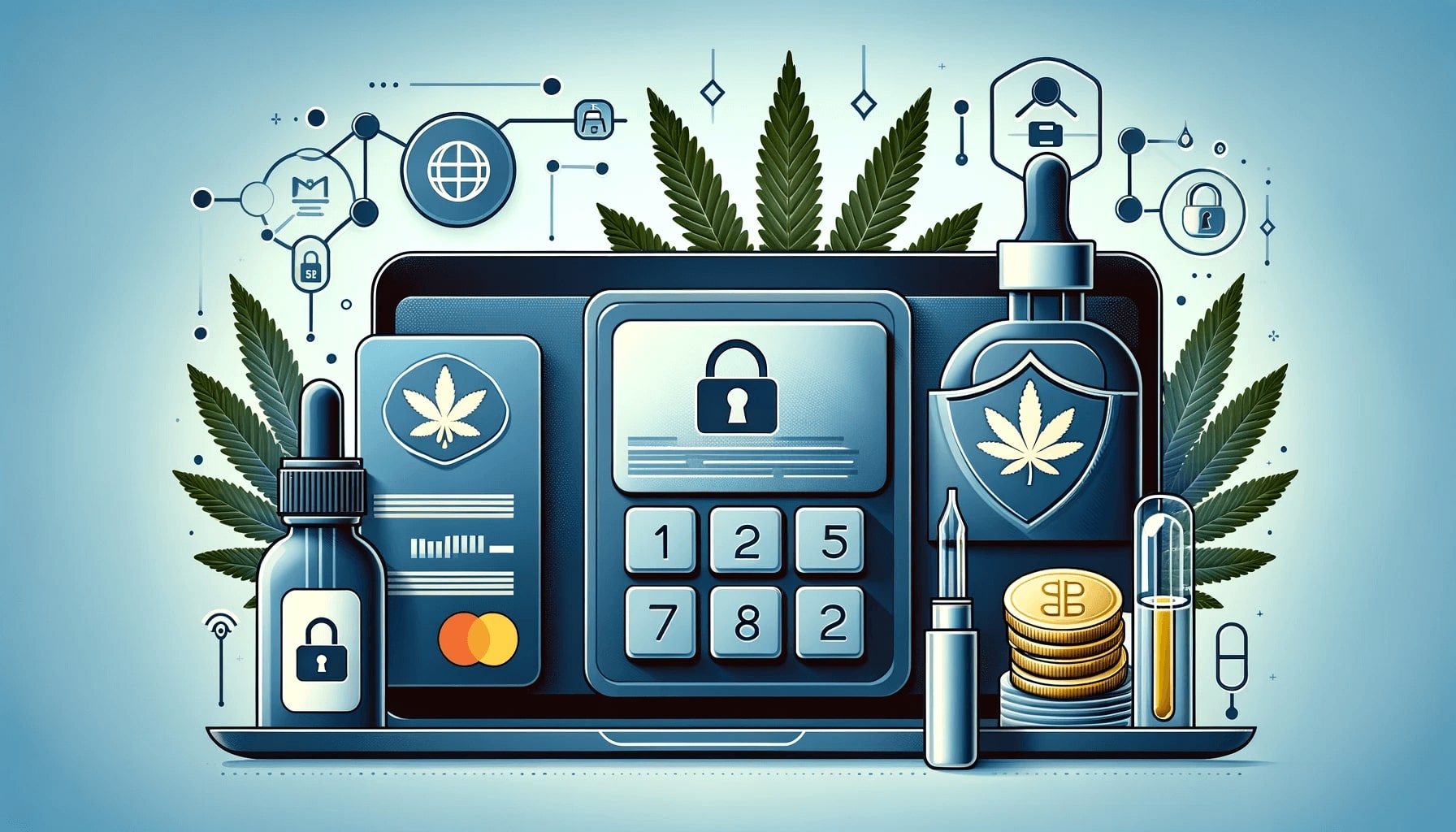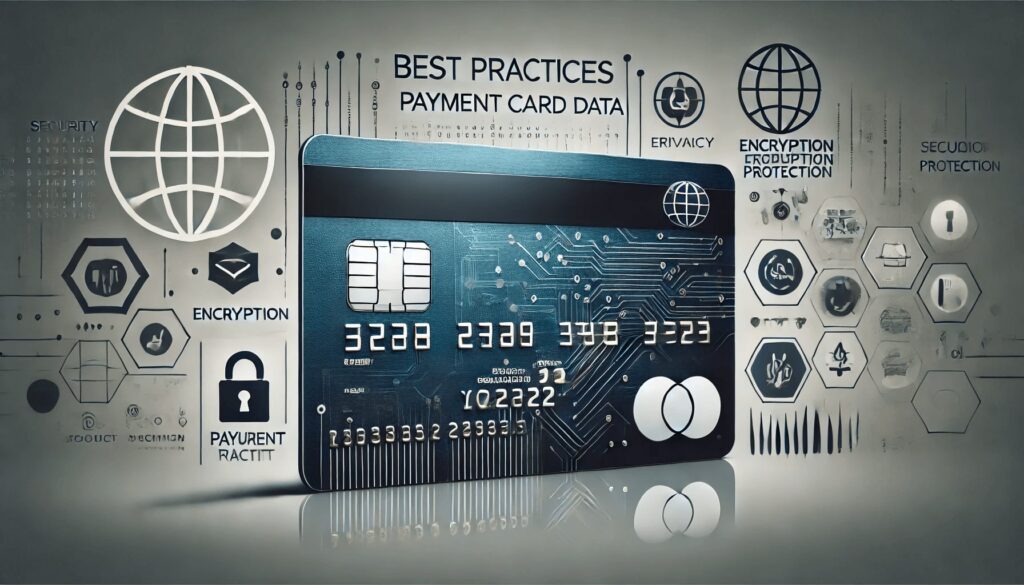
By admin October 6, 2024
In recent years, the CBD oil industry has experienced significant growth, with more and more businesses entering the market. As the popularity of CBD oil products continues to rise, so does the need for secure payment processing solutions. This is where PCI compliance comes into play. PCI compliance, or Payment Card Industry Data Security Standard compliance, is a set of security standards designed to protect cardholder data and ensure secure payment transactions.
In this article, we will explore everything you need to know about PCI compliance for CBD oil businesses, including its importance, the basics of PCI DSS, steps to achieve compliance, common challenges and solutions, best practices for securing payment card data, choosing the right payment processing solution, and training and education for employees on PCI compliance.
Understanding the Importance of PCI Compliance

The importance of PCI compliance cannot be overstated, especially for CBD oil businesses that handle sensitive payment card data. Non-compliance can result in severe consequences, including hefty fines, loss of customer trust, and even legal action. By achieving PCI compliance, CBD oil businesses can demonstrate their commitment to protecting customer data and ensure secure payment transactions. This not only helps build trust with customers but also reduces the risk of data breaches and financial losses.
The Basics of PCI DSS: What You Need to Know
PCI DSS, or Payment Card Industry Data Security Standard, is a set of security standards developed by the major card brands, including Visa, Mastercard, American Express, Discover, and JCB International. These standards are designed to ensure the secure handling of cardholder data and protect against data breaches. CBD oil businesses must comply with these standards to maintain the security of their payment card data and achieve PCI compliance.
The PCI DSS consists of 12 requirements that businesses must meet to achieve compliance. These requirements include installing and maintaining a firewall, using unique passwords and other security measures, encrypting cardholder data, regularly monitoring and testing networks, and implementing strong access control measures. CBD oil businesses must understand and implement these requirements to ensure the security of their payment card data and achieve PCI compliance.
Steps to Achieve PCI Compliance for CBD Oil Businesses
Achieving PCI compliance can be a complex process, but by following a systematic approach, CBD oil businesses can ensure they meet all the necessary requirements. The following steps outline the process of achieving PCI compliance:
- Assess your current payment card data environment: Start by conducting a thorough assessment of your current payment card data environment. Identify all systems, processes, and people that handle cardholder data and determine the scope of your compliance efforts.
- Identify and address vulnerabilities: Once you have identified your payment card data environment, conduct a vulnerability scan to identify any weaknesses or vulnerabilities. Address these vulnerabilities promptly to ensure the security of your payment card data.
- Implement security measures: Implement the necessary security measures to protect cardholder data. This includes installing and maintaining a firewall, using strong encryption, implementing access controls, and regularly monitoring and testing your systems.
- Complete the self-assessment questionnaire: CBD oil businesses are required to complete a self-assessment questionnaire (SAQ) to assess their compliance with the PCI DSS requirements. The SAQ helps identify any gaps in compliance and provides guidance on how to address them.
- Conduct a penetration test: A penetration test is a simulated attack on your systems to identify any vulnerabilities that could be exploited by hackers. This test helps ensure the security of your payment card data and identifies any weaknesses that need to be addressed.
- Submit compliance documentation: Once you have completed the necessary steps to achieve PCI compliance, you must submit the required compliance documentation to your acquiring bank or payment processor. This documentation demonstrates your compliance with the PCI DSS requirements.
By following these steps, CBD oil businesses can achieve PCI compliance and ensure the security of their payment card data.
Common Challenges and Solutions for CBD Oil Businesses

CBD oil businesses face unique challenges when it comes to achieving PCI compliance. These challenges include the complexity of the payment card data environment, the evolving nature of the CBD industry, and the need for secure online transactions. However, there are solutions available to address these challenges and ensure PCI compliance.
One common challenge for CBD oil businesses is the complexity of the payment card data environment. CBD oil businesses often have multiple systems and processes that handle cardholder data, making it difficult to maintain compliance. To address this challenge, businesses should conduct a thorough assessment of their payment card data environment and implement the necessary security measures to protect cardholder data.
Another challenge for CBD oil businesses is the evolving nature of the CBD industry. As regulations and requirements change, businesses must stay up to date and ensure their compliance efforts align with the latest standards. This can be achieved by regularly reviewing and updating security measures, conducting vulnerability scans and penetration tests, and staying informed about industry changes.
Additionally, CBD oil businesses face the challenge of securing online transactions. With the increasing popularity of online sales, businesses must ensure the security of their e-commerce platforms and protect customer data during online transactions. This can be achieved by implementing secure payment gateways, using encryption technologies, and regularly monitoring and testing online systems.
Best Practices for Securing Payment Card Data

Securing payment card data is crucial for CBD oil businesses to achieve PCI compliance and protect customer information. The following best practices can help businesses secure payment card data:
- Use encryption: Encrypting cardholder data is essential to protect it from unauthorized access. Implement strong encryption technologies to ensure the security of payment card data both at rest and in transit.
- Implement access controls: Limit access to payment card data to only authorized personnel. Implement strong access controls, including unique usernames and passwords, to prevent unauthorized access.
- Regularly update and patch systems: Keep your systems up to date with the latest security patches and updates. Regularly patching vulnerabilities helps protect against known security threats.
- Monitor and log all access: Implement a system for monitoring and logging all access to payment card data. This helps identify any suspicious activity and provides an audit trail for compliance purposes.
- Train employees on security best practices: Educate your employees on security best practices and the importance of protecting payment card data. Regular training and education can help prevent human errors and ensure compliance.
Choosing the Right Payment Processing Solution for PCI Compliance
Choosing the right payment processing solution is crucial for CBD oil businesses to achieve PCI compliance. When selecting a payment processor, businesses should consider the following factors:
- PCI compliance: Ensure that the payment processor is PCI compliant and can provide the necessary documentation to demonstrate compliance.
- Security features: Look for payment processors that offer advanced security features, such as tokenization and point-to-point encryption. These features help protect payment card data and reduce the scope of PCI compliance.
- Integration capabilities: Consider the integration capabilities of the payment processor with your existing systems. Seamless integration reduces the complexity of achieving PCI compliance.
- Reputation and reliability: Choose a payment processor with a good reputation and a track record of reliability. Look for reviews and testimonials from other CBD oil businesses to ensure you are selecting a trusted partner.
Training and Education for Employees on PCI Compliance
Training and education are essential for ensuring that employees understand the importance of PCI compliance and follow best practices for securing payment card data. CBD oil businesses should provide regular training sessions and educational materials to employees, covering topics such as:
- The basics of PCI compliance: Educate employees on the basics of PCI compliance, including the requirements of the PCI DSS and the consequences of non-compliance.
- Security best practices: Train employees on security best practices, such as using strong passwords, recognizing phishing attempts, and securely handling payment card data.
- Incident response procedures: Provide employees with clear guidelines on how to respond to security incidents, such as data breaches or suspicious activity.
- Ongoing education: Keep employees informed about the latest security threats and industry changes through regular updates and educational materials.
Frequently Asked Questions
Q.1: What is PCI compliance?
PCI compliance refers to the adherence to the Payment Card Industry Data Security Standard (PCI DSS), a set of security standards designed to protect cardholder data and ensure secure payment transactions.
Q.2: Why is PCI compliance important for CBD oil businesses?
PCI compliance is important for CBD oil businesses as it helps protect customer data, ensures secure payment transactions, and reduces the risk of data breaches and financial losses.
Q.3: What are the requirements of the PCI DSS?
The PCI DSS consists of 12 requirements that businesses must meet to achieve compliance. These requirements include installing and maintaining a firewall, using unique passwords, encrypting cardholder data, and implementing strong access control measures.
Q.4: How can CBD oil businesses achieve PCI compliance?
CBD oil businesses can achieve PCI compliance by assessing their payment card data environment, addressing vulnerabilities, implementing security measures, completing the self-assessment questionnaire, conducting a penetration test, and submitting compliance documentation.
Q.5: What are the common challenges for CBD oil businesses in achieving PCI compliance?
Common challenges for CBD oil businesses in achieving PCI compliance include the complexity of the payment card data environment, the evolving nature of the CBD industry, and the need for secure online transactions.
Conclusion
In conclusion, PCI compliance is crucial for CBD oil businesses to protect customer data, ensure secure payment transactions, and maintain the trust of their customers. By understanding the importance of PCI compliance, CBD oil businesses can take the necessary steps to achieve compliance and secure their payment card data.
This includes understanding the basics of PCI DSS, implementing security measures, addressing common challenges, following best practices for securing payment card data, choosing the right payment processing solution, and providing training and education to employees. By following these guidelines, CBD oil businesses can achieve PCI compliance and ensure the security of their payment card data.
